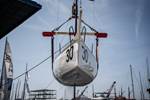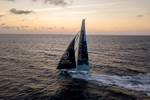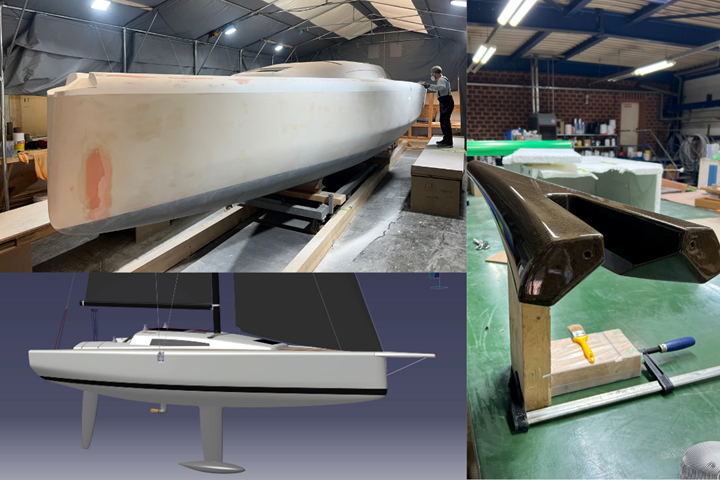Greenboats announces sailing boat with biocomposite construction
The MB9, representing a combination of high performance and eco-conscious materials use, will be commercially available in time for the 2024 sailing season.
In a stride toward eco-friendly maritime innovation, Greenboats (Bremen, Germany) announces the launch of the MB9 sailing boat. Designed by the veteran naval architect Matthias Bröker of design engineering company Judel/Vrolijk (Bremerhaven, Germany), the MB9 represents a fusion of top-tier performance and sustainability, highlighting Greenboat’s expertise in natural fiber reinforcements and natural fiber-reinforced composite semi-finished products. Having just "hit the water," the vessel is poised for final outfitting before its official debut in the 2024 sailing season.
At the heart of the MB9’s design is its eco-conscious construction, offering the potential of bio-based materials in marine construction. The sailing boat is almost entirely from natural materials like flax, balsa wood and bio-epoxy; flax fiber in particular is known for its durability, noise reduction and eco-friendly properties. Notably, only the rudder shaft and keel fin are crafted from carbon fiber, ensuring robustness where it is most needed. The construction results in a vessel weighing just over three tons.
Tailored for regatta racing, the MB9 is the epitome of ergonomic design and efficiency, Greenboat says. Its cockpit is meticulously laid out for single-handed and double-handed racing, reflecting Bröker's aspirations for participating in prominent races in Germany and Denmark. The attention to detail extends to customizing dimensions for the owner’s comfort, enhancing the boat's competitive edge.
For related content, read “Flax fiber producer Group Depestele invests in Greenboats GmbH.”
Related Content
-
Syensqo becomes new Solvay specialty materials company
Syensqo represents what was Solvay Composite Materials, focused on delivering disruptive material technologies and supporting growing customer needs.
-
TU Munich develops cuboidal conformable tanks using carbon fiber composites for increased hydrogen storage
Flat tank enabling standard platform for BEV and FCEV uses thermoplastic and thermoset composites, overwrapped skeleton design in pursuit of 25% more H2 storage.
-
Daher CARAC TP project advances thermoplastic composites certification approach
New tests, analysis enable databases, models, design guidelines and methodologies, combining materials science with production processes to predict and optimize part performance at temperatures above Tg (≈150-180°C) for wing and engine structures.














